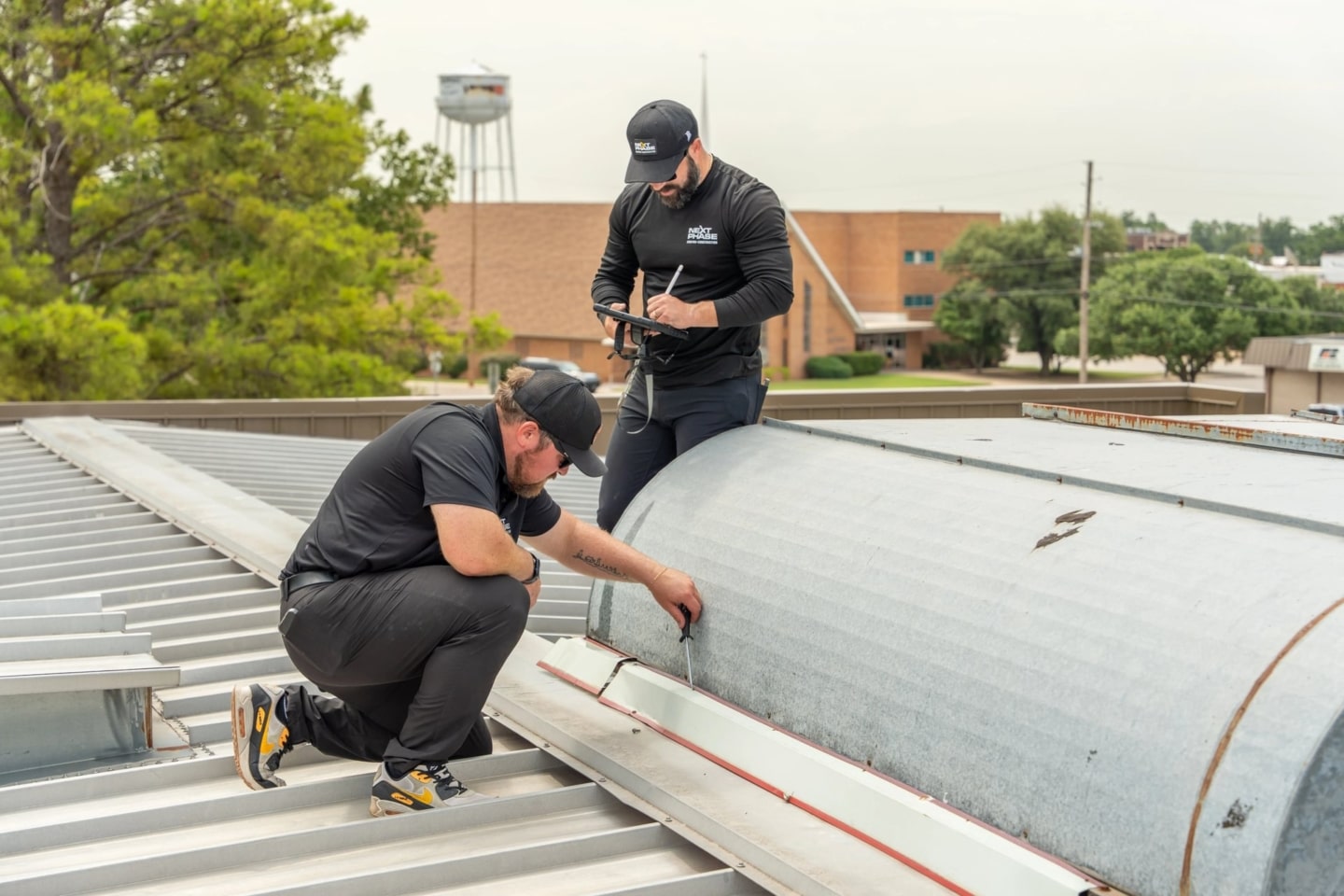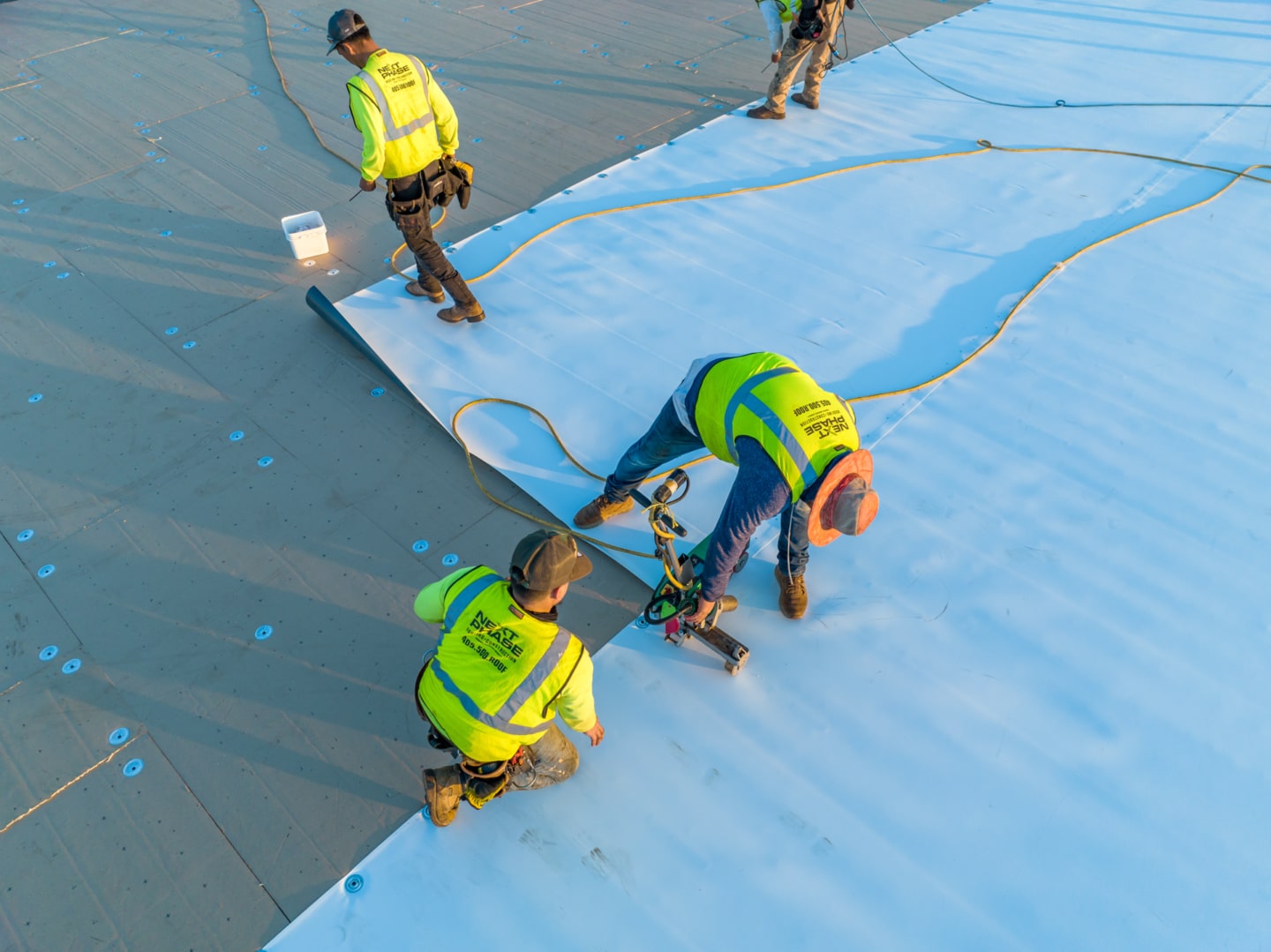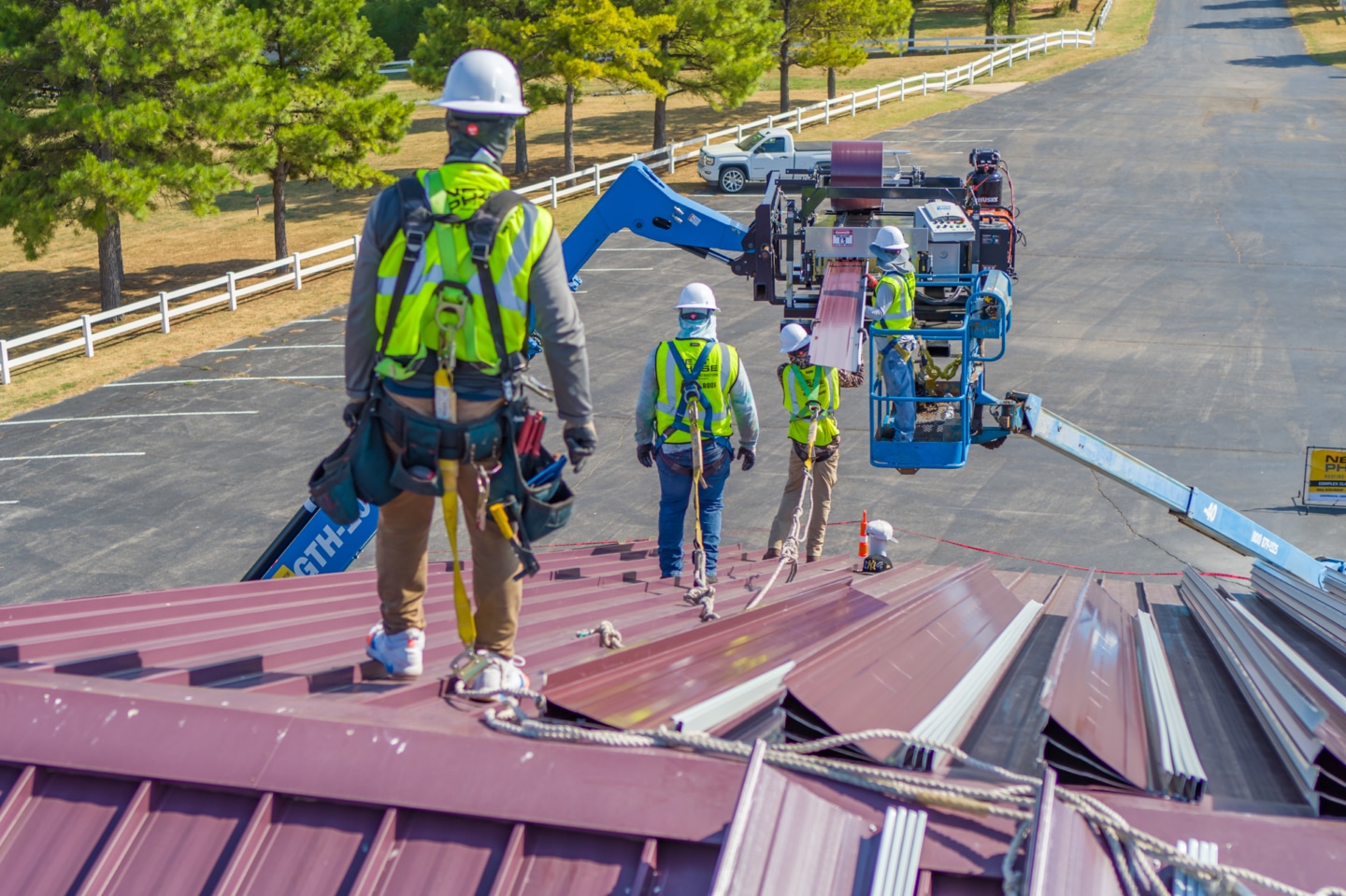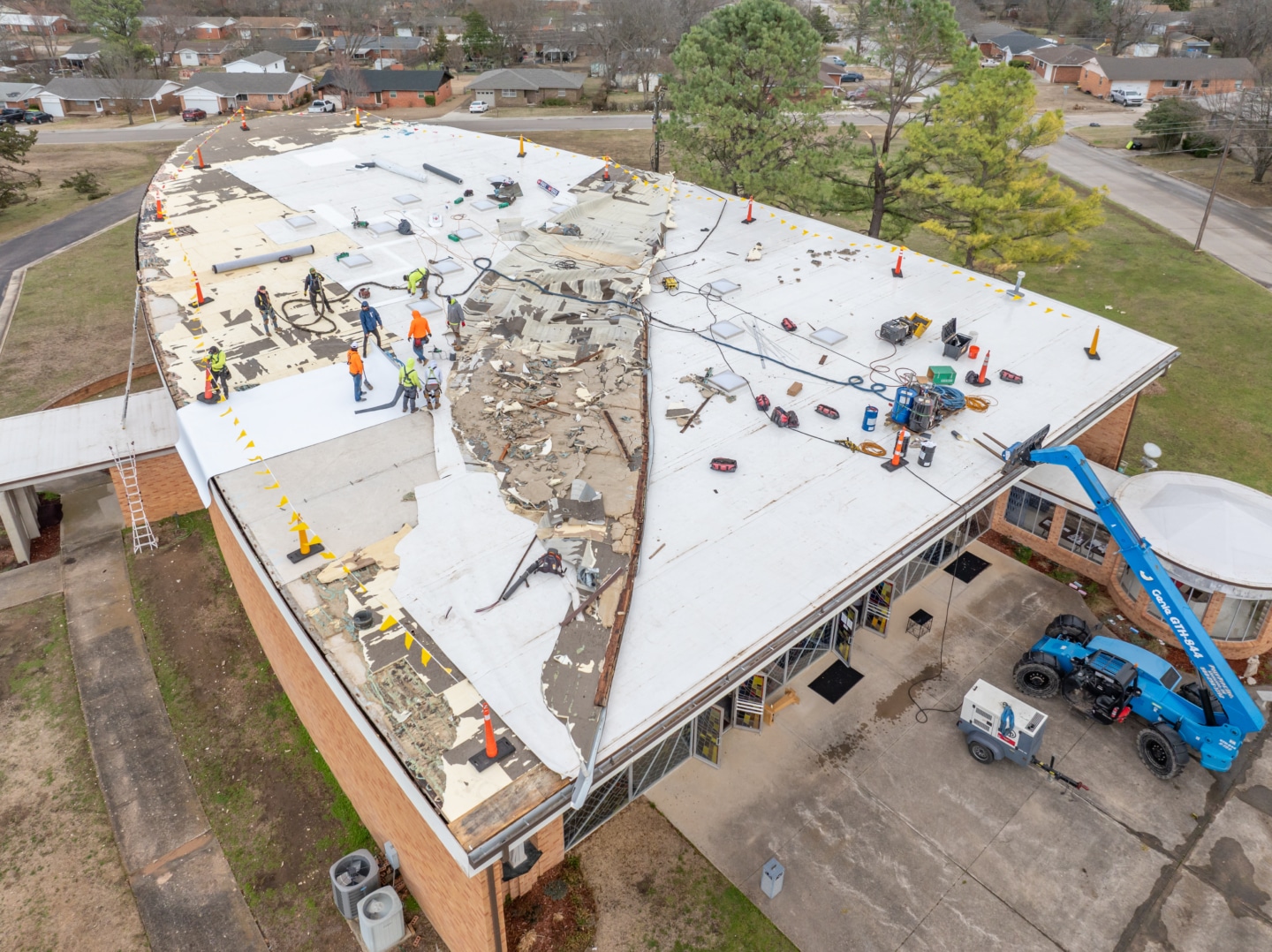It’s a common perception that roof maintenance is only about preventing leaks, but the reality is that it delivers far more value than most building owners and facility managers realize. A well-maintained roof provides financial and operational benefits that directly impact your bottom line. By taking a proactive approach, you’re not just avoiding water intrusion—you’re investing in the longevity, efficiency, and safety of your building.
In this article, we’ll explore what roof maintenance entails, six key ways it generates return on investment, and how Next Phase’s expertise with a variety of roof systems and building types can help you protect your property for years to come.
Understanding Roof Maintenance
So, what does roof maintenance really involve? It starts with regularly scheduled inspections designed to identify small problems before they escalate. Minor repairs—like sealing penetrations, addressing early signs of damage, or tightening loose components—are handled during these visits, ensuring your roof stays in peak condition.
Another critical element of maintenance is keeping your roof clean and free of debris. Gutters, drains, and roof surfaces should be cleared regularly so that leaves, dirt, and other buildup don’t clog drainage paths or trap standing water, especially on flat or low-slope roofs. Maintenance may also involve applying sealants or reflective coatings to enhance durability and improve energy efficiency. And of course, ongoing monitoring for wear and tear is essential, particularly in regions prone to heavy storms, high winds, and temperature fluctuations.
6 Ways Roof Maintenance Delivers ROI
1. Avoiding Emergency Repairs and Premature Roof Replacement
Small roofing issues can escalate into major problems if left unchecked—especially when severe weather strikes. A minor penetration or seam issue can quickly become a major leak after a heavy rain or snowstorm. Weak points can lead to sections of the roof being lifted or torn off during high winds. By catching these problems early through regular maintenance, you can avoid the costly emergency repairs and unplanned replacements that disrupt your budget and operations.
2. Improving Energy Efficiency
A well-maintained roof plays a significant role in regulating your building’s temperature. Proper insulation, combined with reflective coatings, can reduce heat absorption in summer and prevent heat loss in winter.
This means lower HVAC loads and significant savings on heating and cooling costs over time. Especially in regions with extreme temperature fluctuations, a properly maintained and energy-efficient roof makes a noticeable difference on your utility bills.
3. Protecting Building Assets and Interiors
When a roof is neglected, water can infiltrate and damage the interior infrastructure of your building—wiring, ceilings, walls, HVAC units, furniture, technology, and more. These damages can lead to expensive remediation efforts, such as mold removal, structural repairs, or replacing damaged equipment.
Even worse, water damage can disrupt your operations, forcing schools to cancel classes, churches to postpone events, or businesses to close temporarily. Preventative roof maintenance helps you avoid these indirect costs and ensures your building continues to function without costly interruptions.
4. Extending Roof Lifespan and Maximizing Asset Value
Every roof material—from TPO to SPF, metal to tile—has a designed lifespan, but that lifespan can be significantly shortened by neglect. Routine maintenance helps preserve the integrity and appearance of your roof, extending its usable life and delaying the need for full replacement. This not only saves you money but also helps maintain your property’s value and curb appeal, which is especially important for schools, churches, and commercial properties that serve the public.
5. Enhancing Building Safety and Managing Liability
Regular roof maintenance improves overall safety by reducing the risk of accidents caused by structural failures or leaks. It also prevents issues like mold growth, which can cause health problems for occupants.
Beyond safety, maintenance helps ensure compliance with building codes and insurance requirements, protecting you from potential liability and making the claims process smoother if you ever need it. A safe, code-compliant roof means fewer legal and financial risks down the road.
6. Increasing Tenant Satisfaction and Occupant Comfort
Few things are more frustrating than walking into a building on a hot summer day only to find the air conditioning struggling to keep up—or freezing in your office during the winter because heat is escaping through the roof. By maintaining your roof properly, you ensure a comfortable indoor environment for everyone inside. This directly impacts tenant satisfaction and retention, as people are far more likely to leave a building that feels uncomfortable or poorly maintained. For schools and churches, a comfortable and well-maintained facility helps create a welcoming environment for students, staff, and congregants.
Key Takeaways
Routine roof maintenance isn’t just another expense—it’s a smart, strategic investment into the future of your building. By staying proactive, you avoid costly emergency repairs and replacements, improve energy efficiency, protect your building’s assets, extend the lifespan of your roof, enhance safety, and keep tenants or occupants satisfied. The financial and operational benefits far outweigh the modest cost of regular maintenance.
Why Choose Next Phase?
At Next Phase Roofing and Construction, we specialize in large-scale commercial roofing and construction projects across Oklahoma, Kansas, Arkansas, Missouri, and Texas. Headquartered in Oklahoma City, we understand the unique demands of this region and have the expertise to protect and maintain complex properties through every season. Whether you have a TPO roof on a commercial property, SPF on a school, or a metal roof on a church, we have the experience to maximize your roof’s performance and lifespan.
Ready to protect your investment with proactive maintenance? Contact us today or call 405-500-7663 to schedule a free inspection.



